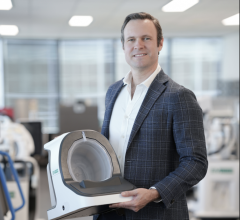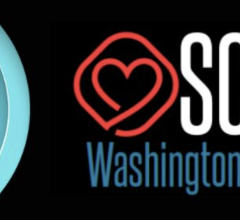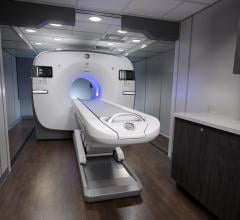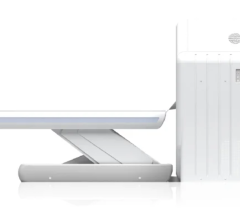
July 26, 2011 – The U.S. Food and Drug Administration (FDA) is alerting healthcare professionals to stop using CardioGen-82 for cardiac positron emission tomography (PET) scans. The manufacturer, Bracco Diagnostics Inc., has decided to voluntarily recall CardioGen-82 this week after two patients set off radiation detectors at a U.S. border crossings due to strontium contamination.
It is the only FDA-approved generator-based PET myocardial perfusion agent. It uses a strontium (Sr)-82 generator to produce a rubidium (Rb)-82 radiotracer injection.
The FDA has received reports of two patients who underwent PET myocardial perfusion imaging scans with CardioGen-82 who had detectable levels of radiation several months after their PET scans. Both patients were crossing the border to/from the United States when radiation detectors identified radiation originating from the patients.
The radiation was found to originate from strontium (Sr-82 and Sr-85). A PET scan had been performed in each patient approximately two and four months earlier, respectively. Since Rb-82 has a half-life of 75 seconds and both patients reported that they had no other exposure to radioactive substances, the residual radiation is likely due to undetected strontium breakthrough.
The strontium isotope exposure may have originated from the myocardial perfusion imaging, said Alberto Spinazzi, M.D., senior vice president of global medical and regulatory affairs, Bracco Diagnostics, in a prepared statement from the company. He said neither strontium-exposed patient suffered any acute health effects or required treatment. However, the long-term effects, if any, are not known.
The radiation exposure that a patient would typically receive from an injection of Rb-82 chloride (approximately 2.8 mSv) is generally less than that associated with other radiotracer cardiac diagnostic scans. The radiation exposure that the two patients received due to strontium isotope exposure appears to substantially exceed that typically associated with CardioGen-82. This assessment is based upon modeling performed by the Los Alamos National Laboratory. This modeling suggests that the excessive radiation exposure (approximately 90 mSv) associated with the strontium isotopes appears similar to the amount of cumulative radiation exposure some patients receive during cardiac diagnostic evaluations with other radionuclides.
Based on further investigation, the FDA determined that the current CardioGen-82 manufacturing procedures are not sufficient to ensure reliable performance of the generator used to produce the Rb-82 chloride injections. The FDA stated reliable generator performance is essential to help prevent strontium breakthrough from CardioGen-82 and to prevent patients from being exposed to excess radiation. FDA is also currently investigating the sufficiency of the testing procedures used to detect strontium breakthrough at the clinical sites that use CardioGen-82.
The FDA recommends that healthcare professionals use alternatives to the CardioGen-82 generator when planning nuclear medicine cardiac scans. Patients who have any questions or concerns should talk to their healthcare professional.
The FDA is continuing to work with the Nuclear Regulatory Commission and Bracco to determine the root cause for the increased radiation exposure detected in the two patients. The extent to which any additional patients may have received inadvertent radiation exposure is also under investigation. FDA plans to notify the public with updates.
The total number of patients who have received doses from CardioGen-82 generators with strontium breakthrough is currently unknown. CardioGen-82 was first cleared by the FDA in 1989.
Bracco said the strontium breakthrough can occur with CardioGen-82 and necessitates close attention to mandatory daily quality control testing to help minimize radiation risks to patients. The company is emphasizing to all CardioGen-82 users the importance of strict adherence to the instructions contained in the prescribing information for CardioGen-82 regarding mandatory daily strontium breakthrough testing (section 2.7 of the full prescribing information). The user training material for CardioGen-82 says testing for strontium breakthrough may sometimes need to be performed twice daily.
For more information: www.fda.gov/Drugs/DrugSafety/ucm265278.htm


 July 30, 2024
July 30, 2024 








